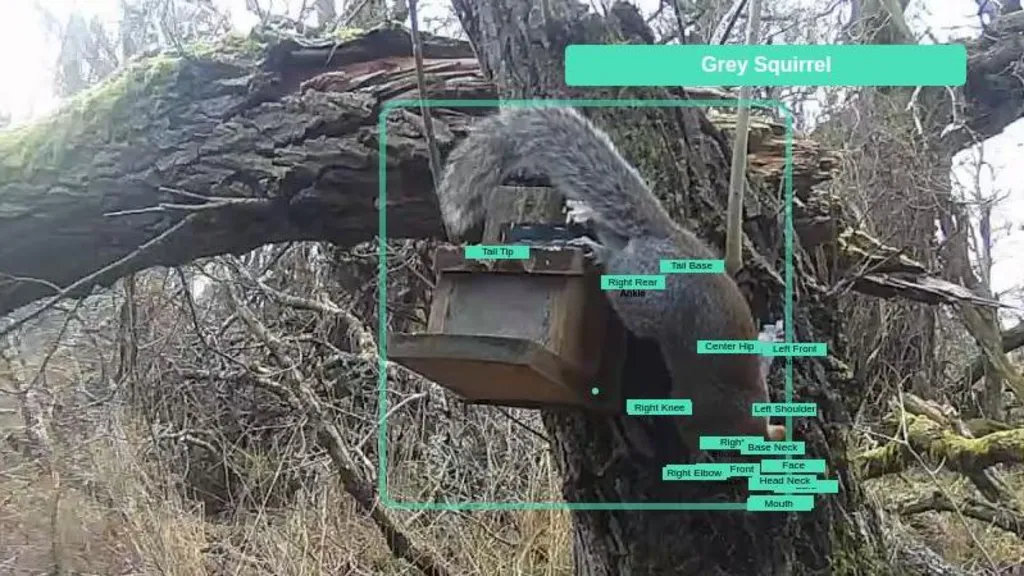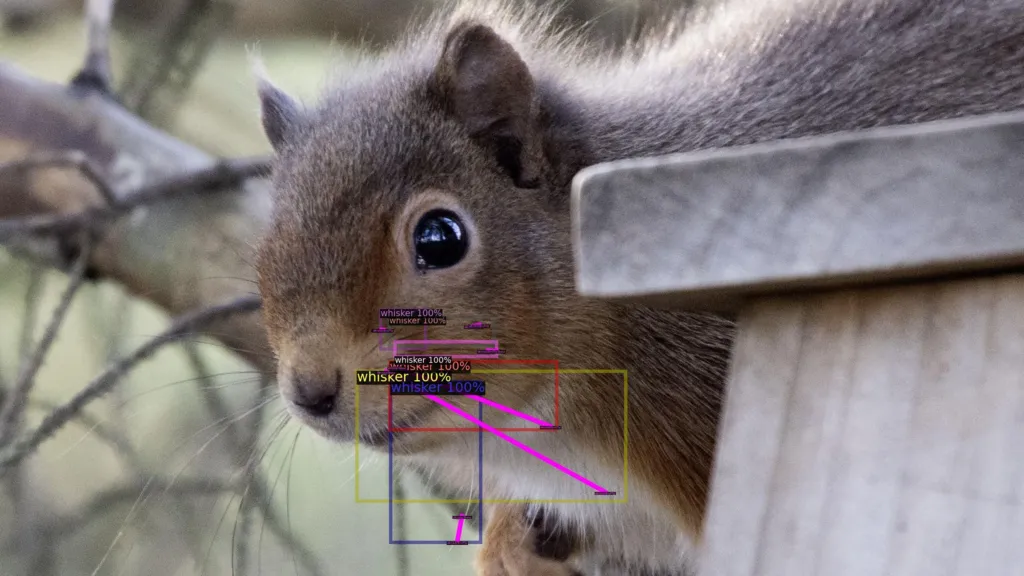A cutting-edge artificial intelligence (AI) system designed to distinguish between red and grey squirrels could revolutionize conservation efforts, experts suggest.
The tool, named Squirrel Agent, boasts a 97% accuracy rate, achieved through training on thousands of squirrel images. According to its developers, it can autonomously manage access to squirrel feeders, ensuring reds gain entry to food while greys are directed to feeders containing contraceptive paste.
“This is a prime example of AI’s potential,” said Emma McClenaghan, co-founder of Genysys Engine, the company behind the technology. “It performs in real-time a task we simply lack the [human] capacity to manage.”
Currently undergoing trials at various UK locations in partnership with five wildlife charities, Squirrel Agent may eventually extend its application to other species, offering advanced digital monitoring to aid conservation.
Ian Glendinning of Northern Red Squirrels, one of the groups involved in testing, emphasized the urgency of technological intervention: “We’re in the last-chance saloon for red squirrels, and time is running out.”

The Grey Threat
Grey squirrels have significantly contributed to the decline of red squirrel populations in the UK, not only due to their overwhelming numbers but also as carriers of a virus lethal to red squirrels. Introduced to the UK around 200 years ago, grey squirrels have decimated native populations, leaving reds clinging to survival in regions like Scotland, Ireland, and isolated islands such as Anglesey and the Isle of Wight.
“Mainland England and Wales are on the brink—without intervention, red squirrels face extinction,” Glendinning warned.
Red squirrels can be difficult to identify, as their coloration varies, and they share certain physical traits with greys. Characteristics like tails, ears, size, and weight can help distinguish the species, but these assessments are labor-intensive for human observers.
Squirrel Agent leverages AI to analyze these traits quickly and with remarkable precision, determining whether to enhance survival odds with supplemental food or limit grey reproduction through contraceptive measures.
Tracking by Whisker
The next phase for Squirrel Agent involves identifying individual squirrels by their whiskers, which McClenaghan compares to human fingerprints.
“Each squirrel’s whisker tips, base, and length are unique, allowing us to track individuals and gather data over time,” she explained. This detailed tracking could eventually enable scientists to monitor population dynamics and family lines.
AI in Conservation
AI’s ability to process vast amounts of data has already proven invaluable for conservation. For instance, the World Wildlife Fund (WWF) used AI to analyze millions of photos of bushfire-ravaged areas in Australia, identifying habitats where animals survived.
Even hobbyists have tapped into AI’s potential. Last year, a British man developed the “Furbinator 3000” to deter foxes and badgers from invading his garden.
As Squirrel Agent evolves, it underscores the transformative role AI can play in wildlife conservation, offering new hope for endangered species like red squirrels.
